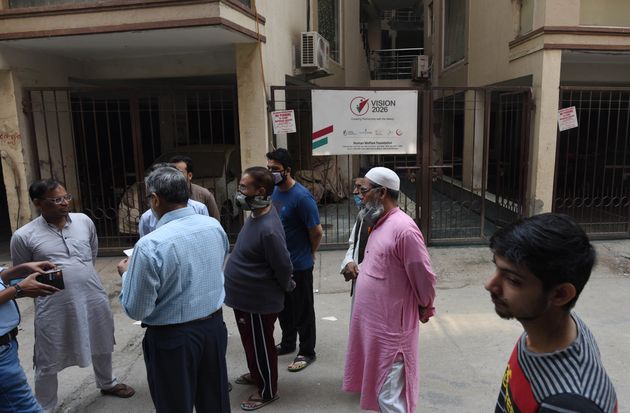
Syed Khalique Ahmed | India Tomorrow
NEW DELHI—Slamming the recent raids at the homes and offices of human rights activists, NGOs, newspaper offices in Delhi, Kashmir and Bangalore in the last two days, Human Rights Watch said on Friday “the Indian government is using counterterrorism operations to silence peaceful dissenters, human rights activists, and journalists”.
South Asia director at Human Rights Watch Meenakshi Ganguly said, “Using authoritarian tactics against outspoken critics and journalists needs to stop.”
Stating that while “India faces serious security challenges”, Ganguly said that “instead of addressing the problems in a rights-respecting manner, the authorities appear determined to crush peaceful criticism and calls for accountability.”
“The Indian government seeks to be a global leader, but instead is drawing international criticism by systematically weakening the country’s long-respected democratic institutions,” Ganguly said. “The government should alter course by upholding democratic principles and protecting the human rights of all its citizens,” she further said in the report.
The National Investigation Agency (NIA) that conducted the raids at more than two dozen places has accused the NGOs and trusts of “raising funds in India and abroad in the name of charitable activities and then using those funds for carrying out secessionist and separatist activities in Jammu and Kashmir.”
The offices and homes raided by NIA on October 28 and 29 include those of Human Welfare Foundation (HWF) and Charity Alliance in New Delhi, human rights defender Khurram Pervez, coordinator of Jammu and Kashmir Coalition of civil society, his associates Parvez Ahmad Matta, Bangalore-based associate Swati Sheshadri, and Parveena Ahangar, chairperson of the Association of Parents of Disappeared Persons (APDP), whose son is among those who have forcibly disappeared in Kashmir.
HWF, that has been working for the last 12 years in the field of providing education, health, relief and rehabilitation of riot-hit people, has done yeoman service in rehabilitation of those affected in Northeast Delhi riots, irrespective of their faith. HWF, in a statement after the NIA raids, said that “its activities are totally transparent”and “accounts are audited regularly and submitted to the Income Tax Department and the Charity Commissioner”. The organization also declared to cooperate in investigation with NIA and any government agency.
Dr. Zafarul Islam Khan of Charity Alliance, in a tweet, said that he was being targeted for his work in the Delhi Minorities Commission, especially on preparation of fact-finding report on Northeast Delhi riots. DMC’s report not only proved that the riots were “prep-planned” but it also proved the how police was allegedly involved with Hindu mobs to attack Muslims. It blasted the police theory that the riots were spontaneous and that neither the police nor any of the BJP leader’s provocative speeches resulted in one of the worst riots since 1947 in the national capital. It brought a bad name to Prime Minister Narendra Modi because Delhi police is directly under the Central government with his close aide Amit Shah holding the Home Portfolio.
Dr. Khan, a very outspoken Muslim scholar and intellectual, fears that he can be implicated in some riot or terror cases. A case od sedition was lodged against him a few months ago based on one of his tweets.
The NIA also raided the home of Parvaiz Bukhari of Agence France-Presse in Srinagar, office of Greater Kashmir, a regional English language newspaper and NGO Athrout that provides education and medical aid to poor people.
On October 19, the Jammu and Kashmir government sealed the Srinagar office of the newspaper Kashmir Times whose executive editor Anuradha Bhasin had challenged in Supreme Court the government’s telecommunication shutdown in the Kashmir Valley after August 5, 2019. The Supreme Court, in its, declared access to internet as a fundamental right and directed the government to relax restrictions on communications in the Muslim-majority Kashmir Valley.
The government is also using the FCRA to harass the NGOs and trust that criticize the government policies. Amnesty International had to close its India operations after the government froze its bank accounts recently.
These actions of the government have drawn condemnation of the government in India as also abroad. The Observatory for the Protection of the Human Rights Defenders, a part of the world Organisation Against Torture and International Federation for Human Rights, also expressed concern over the harassment and intimidation of human rights activists in India.
Recently, United Nations High Commissioner for Human Rights Michelle Bachelet also condemned the targetting of human rights defenders in India.




